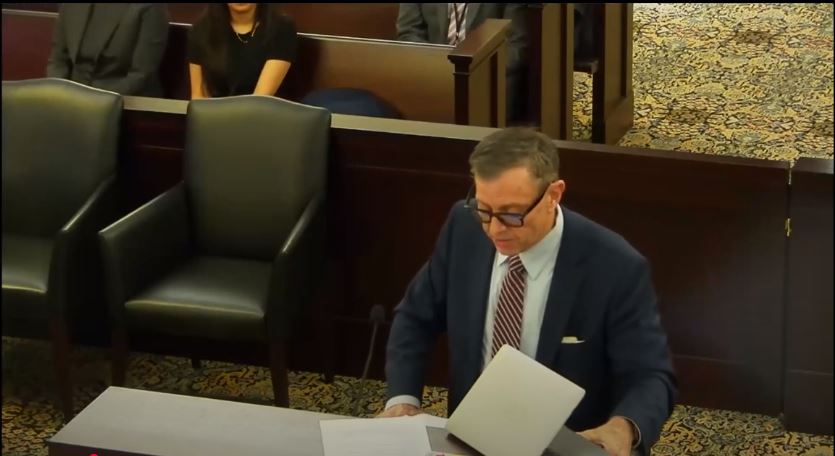Can the police sieze your belongings and hold it without charging you with a crime?
Forfeiture laws in Michigan allow the government to seize property – like cash, cars, or even houses – if they believe it was involved in a crime.
What is Forfeiture?
Forfeiture is a legal process where the government takes ownership of private property because it’s believed to be connected to illegal activity. There are two main types:
Criminal Forfeiture: This happens after someone has been convicted of a crime. The property seized is usually related to that specific crime.
Civil Forfeiture: This can occur without a criminal conviction. The government argues that the property itself was involved in a crime, regardless of whether the owner is found guilty.
Important Points to Know:
What Property Can Be Forfeited?
Under Michigan law (specifically related to drug crimes, (MCL 333.7521), a wide range of property can be seized, including:
- Money, negotiable instruments, and securities.
- Real estate (MCL 600.3815)
- Vehicles, boats, and aircraft (S.B. 2 & H.B 4001-4002)
- Equipment and materials used in illegal activities (like drug manufacturing).
- Anything of value exchanged for illegal substances.
How Does it Work?
Seizure: Law enforcement can seize property if they have probable cause to believe it’s connected to a crime. In some cases, they need a warrant, but not always (MCL 333.7522).
Notice: If your property is seized, the government is supposed to notify you (MCL 600.4707 & 333.7523). If they can’t find you, they may publish a notice online or in a newspaper.
Claim: If you want your property back, you usually have a limited time (e.g., 20-28 days after notice) to file a claim with the government, stating your interest in the property and why it shouldn’t be forfeited. This claim often needs to be written, signed, and verified (notarized).
Civil Action: If you file a claim, the government (usually the Attorney General or local prosecutor) may then file a civil lawsuit in court to try and get a forfeiture order.
Burden of Proof: In a forfeiture hearing, the government generally has to prove by a “preponderance of the evidence” (meaning it’s more likely than not) that the property was connected to a crime (MCL 600.4707). However, for property valued over $50,000 in drug cases, the burden might shift to the owner to prove they didn’t know about the illegal activity (according to some interpretations of MCL 333.7523a).
Conviction Requirement (Limited): A significant reform in 2019 (Senate Bill 2 and House Bills 4001 & 4002) requires a criminal conviction or plea agreement for forfeitures of property valued under $50,000 in drug-related cases, unless the owner abandons the property (news from May 2019).
Rights of Property Owners
You have the right to:
- Be notified about the forfeiture proceedings.
- File a claim to contest the forfeiture.
- Have a hearing in court (if you file a claim).
- Present evidence to show your property wasn’t involved in a crime or that you were an innocent owner.
What Happens to Forfeited Property?
Generally, the law enforcement agency that seized the property can keep it for their use or sell it.
The proceeds from the sale are often used for law enforcement purposes (MCL 333.7524).
Kelsey’s Law Connection: It’s important not to confuse forfeiture laws with traffic laws like Kelsey’s Law (related to teen drivers and cell phone use). They are completely different areas of law.
Links to Laws:
- MCL 333.7521 (Controlled Substances – Forfeiture): You can find these sections within the Michigan Public Health Code on the Michigan Legislature website.
- MCL 600.4701 (Revised Judicature Act – Forfeiture): This act also contains provisions related to forfeiture.
Recent News:
- Michigan Supreme Court Ruling (July 2024): The Michigan Supreme Court ruled against Detroit’s practice of seizing cars in drug-related cases unless there’s evidence the car was used to transport drugs for trafficking purposes. This decision is seen as a curb on aggressive forfeiture practices.
- Report on Forfeiture (October 2023): A report highlighted that even with recent reforms, Michigan still sees cases where people lose property without being charged with a crime, and most forfeiture cases happen without much court oversight (Mackinac Center, October 2023).
- Limitations on Forfeiture Without Conviction (2019): As mentioned earlier, laws were passed in 2019 requiring a conviction in many drug-related forfeiture cases involving property under $50,000 (Michigan.gov press release, May 2019).
It’s crucial to understand that forfeiture laws can have a significant impact on individuals, even those who haven’t been found guilty of a crime. If your property has been seized, it’s highly recommended to seek legal advice immediately to understand your rights and options.
More Articles

Appeals Court – Detroit’s Asset Forfeiture Violates Due Process
A federal circuit judge writes that Detroit's vehicle seizure scheme "is simply a money-making venture—one most often...

SEARCH & SEIZURE: Government Use of Drones
Drone Surveillance and the Fourth Amendment: A New Case In a recent decision, the Michigan Court of Appeals held that...
Defending Against Criminal Sex Charges
Defense against false accusations of Criminal Sexual Conduct (CSC) in MichiganDefending against a false accusation of...

Forfeiture without Criminal Charges
Can the police seize your belongings and hold it without charging you with a crime?Read the summary below and watch...
More
Ballot measures aim to limit police forfeitures
Orchard Lake and Sylvan Lake have two of the smallest police forces in Michigan, but voters there will be asked to curb their powers to confiscate property associated with crime. Ballot measures in both communities would require a criminal conviction before...
2015 Michigan State Police Asset Forfeiture Report Final
2015 Michigan State Police Asset Forfeiture Report Final Final stats for 2014 for Michigan Police Agencies who decided to report asset forfeitures. Many did not...So one would imagine the stats are not transparent and true. STATUS QUO
Editorial: Court puts limit on police stealing
A state court has broken up one of the biggest theft rings in Michigan. The state Supreme Court should let the ruling stand and the Legislature should enshrine it in law. The Michigan Court of Appeals recently ruled that a key provision of the civil...
Feds using forfeiture to their advantage
The Justice Department recently announced that it is resuming the “equitable sharing” part of its civil asset forfeiture program, thus ending one of the major criminal justice reform victories of the Obama administration. Civil asset forfeiture is a legal tool...
Editorial: Toughen proposed forfeiture reforms
Innocence until proven guilty should also mean an individual isn’t punished until guilt is established in court. But in Michigan and other states, a suspect can lose property and cash without ever even being charged with a crime. A package of bills voted...
Mich. cops seized $24M in 2014 in drug cases
Michigan police agencies seized some $23.9 million last year from suspected drug traffickers, according to a forfeiture report released by the Michigan State Police. Subtracting costs and shares of assets paid out to partnering organizations, state law...















